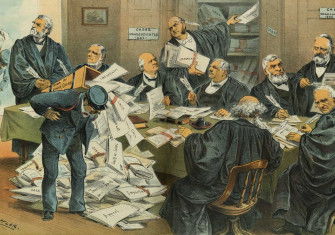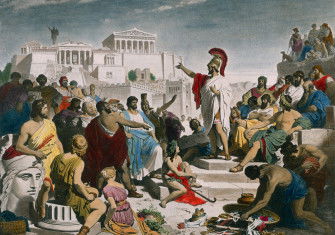The State of the Nation
Recent political crises have shown the importance – and neglect – of constitutional history.

‘Societies, all societies, are constituted in a certain way, and this way is their constitution’, said the US public intellectual Philip Bobbitt in 2003. The connection between the life of a society and its constitution has only become more pronounced in the years since. Constitutions frame the political life of a nation and this in turn both reflects and makes possible its social life. The constitutional order under which a people live is an integral component of their self-image. In 1792 William Pitt the Younger told the House of Commons that ‘love of the constitution’ was a ‘natural instinct’ of Britons, for it ‘provides, beyond any other frame of government which has ever existed, for the real and useful ends which form at once the only true foundation and only rational object of all political societies’.







